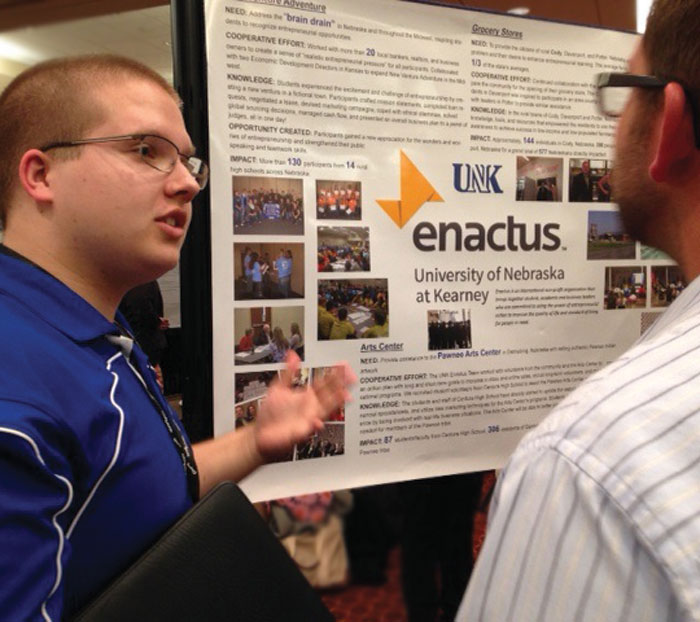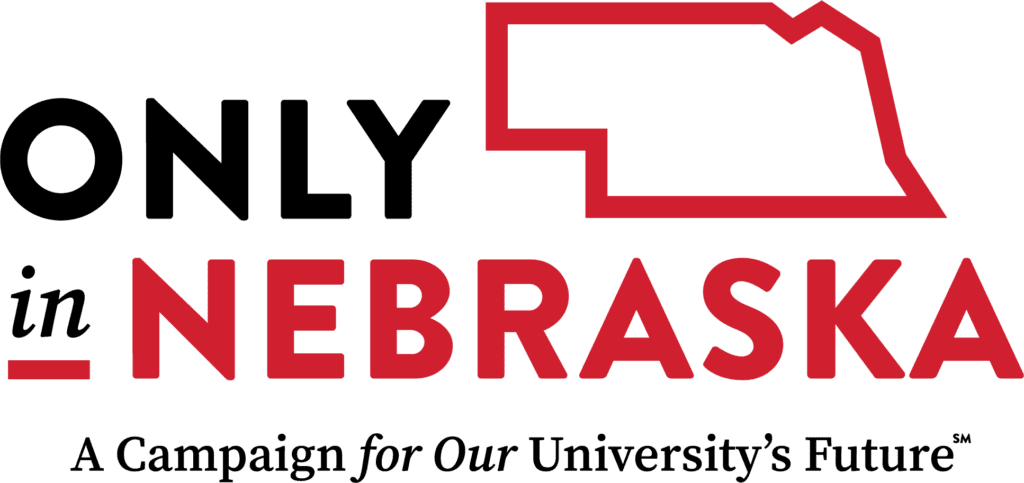Reinvigorating rural people and places


NU’s new Rural Futures Institute aims to be a world leader in finding bold, new ways to help rural America thrive
Many different shoes stepped beyond a grand boundary.
Nikes.
Sandals.
Cowboy boots.
Wingbacks.
Comfortable pumps. …
They belonged to people from many different walks of life who walked into The Cornhusker Hotel’s grand ballroom in Lincoln Nov. 3-5 to join the conversation at the second Rural Futures Conference, put on by the University of Nebraska’s new Rural Futures Institute.
They came from many different backgrounds.
Professors. Students. Farmers. Ranchers.
Conservationists. Community leaders.
Entrepreneurs.
Older people at their career peak.
Younger people with hunger. …
They talked about finding bold, new ways to make rural America a place where young families want to establish roots and raise their kids. They talked about how to think beyond the boundaries of their own comfort zones. (Beyond Boundaries was the conference theme.) They talked about how to talk to each other beyond the generations.
“We must stay true to our values while reinventing our narrative,” UNMC Vice Chancellor Bob Bartee, a former farm boy, told them. “In this age of rapid change, stasis is death.”
No idea was too weird.
And they talked about changing the world.
The Rural Futures Institute officially began just over a year ago following two years of development led by Ronnie D. Green, University of Nebraska Vice President for Agriculture and Natural Resources.
The goal of the Lincoln-based institute is to tap the talents and resources of the University of Nebraska’s four campuses and to collaborate with partners beyond those institutions to address the challenges and opportunities rural communities face – in areas such as entrepreneurship, innovation, technology, healthcare, education, law, the arts, and how to attract and develop talent.
“Just as the Hail Mary pass at the end of the Northwestern-NU football game (the night before) had been tipped up in the air, now the University of Nebraska is catching this ball called ‘re-imagining rural’ to score in ways never seen before as a leading 21st century land-grant university,” Green said in opening the conference.
Chuck Schroeder, founding director of the RFI, told the crowd that the RFI may be “the boldest-in-history effort to invigorate rural people and places” in Nebraska and beyond.
Way beyond.
“We are declaring that we believe that vibrant rural people and places are essential to the fabric of American life,” he said. “We intend this to be the world’s greatest gathering of resources around these issues, and to be recognized in that way, so that every one of you can be proud of your association with the Rural Futures Institute, and to know that you are part of something that is indeed global in its perspective, global in its impact, and one that is sustainable.”
The University of Nebraska, he said, already has emerged as a global leader in water for food, agricultural production and in feeding the world. Now it is declaring that rural people and places also are “the appropriate focus for one of the greatest universities in the country, arguably the world.”
The conference sold out. About 500 people came.
Among the crowd was UNK junior Michael Lechowicz, who wore black dress shoes as he stood by his poster during the poster competition. His poster told how he and other members of a student business group at UNK called Enactus had worked with high school students and others in Cody, Neb., to develop a business plan for a grocery store. The town existed in a “food desert.” For 15 years, it had no store. People had to drive to Valentine 35 miles away.
The Circle C Market opened this past May. The community plays a hands-on role in running it. Students work there as part of a high school business class, stocking the shelves, doing the bookkeeping – their classroom actually is in the store.
“Young people, young ideas are what will make our state grow,” Lechowicz said. “We need to inspire the youth with the opportunities that not only reside in their hometown, but with the opportunities that are in rural Nebraska.”
His poster tied for first place. He donated his $750 prize to Enactus.
Another person who stepped into the conversation was U.S. Secretary of Agriculture Tom Vilsack. His keynote speech the final afternoon was part of the university’s Heurmann Lectures. He pointed out that the United States is a “food secure” nation, with the capability of feeding its people.
Very few nations, he said, have that capacity.
“Now is the time for us to re-emphasize, re-educate and remind America of the importance of rural America,” said Vilsack, who grew up in rural Iowa. “We have to market agricultural research in a way that people understand what’s in it for them.”
University of Nebraska President James B. Milliken said the RFI already has made progress toward its goals. It has awarded grants that already are showing fruit, he said, and it has “the right man,” Schroeder, leading it.
Schroeder, a UNL graduate, has worn many hats over the years. He was with his family’s company, the Schroeder Cattle Co., for about 30 years, the last 10 years as owner and president. He was executive vice president at the University of Nebraska Foundation and was director of the Nebraska Department of Agriculture. He was CEO of the National Cattlemen’s Beef Association. His most recent post was president and executive director of the national Cowboy & Western Heritage Museum in Oklahoma City.
He told the crowd that he was raised in rural Nebraska by parents who always encouraged him to take risks and dream big.
To step beyond boundaries.
“The RFI is simply one more step in the life of this university to move forward addressing one of the most critical issues facing the planet.”
Ag and Life Sciences are priorities of the Campaign for Nebraska, now in its final year. If you would like to help the Rural Futures Institute, please consider giving online to The UNL Rural Futures Conference Fund or contact the foundation at 800-432-3216.





